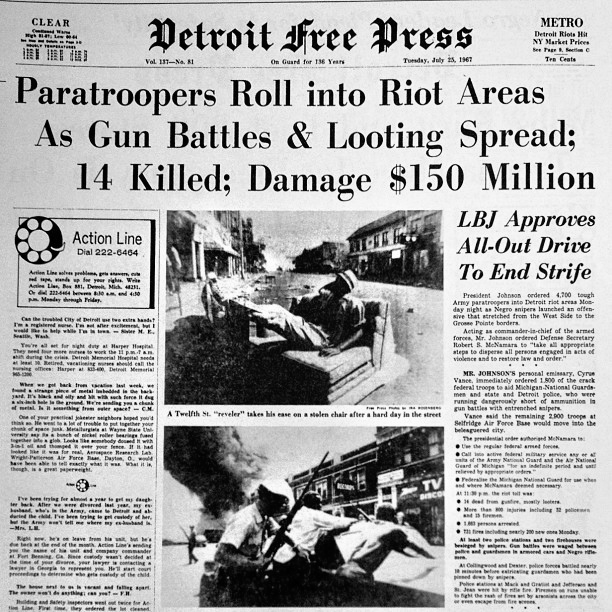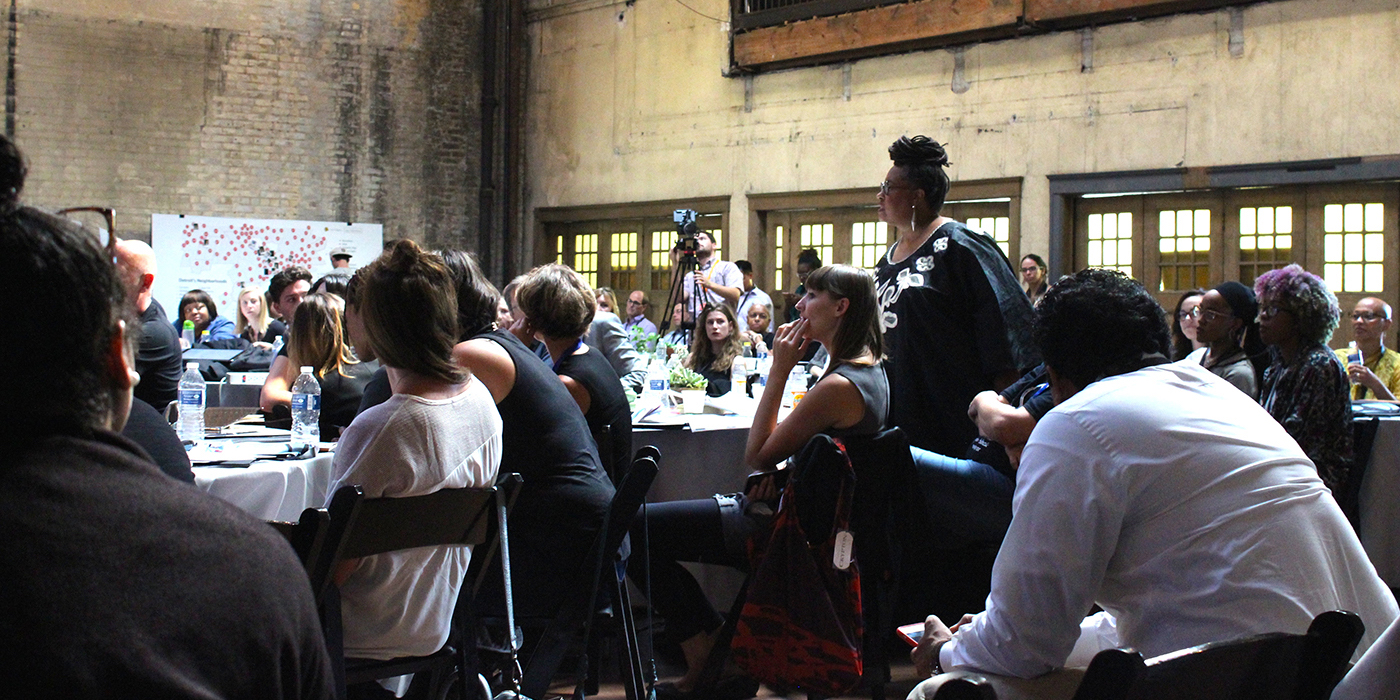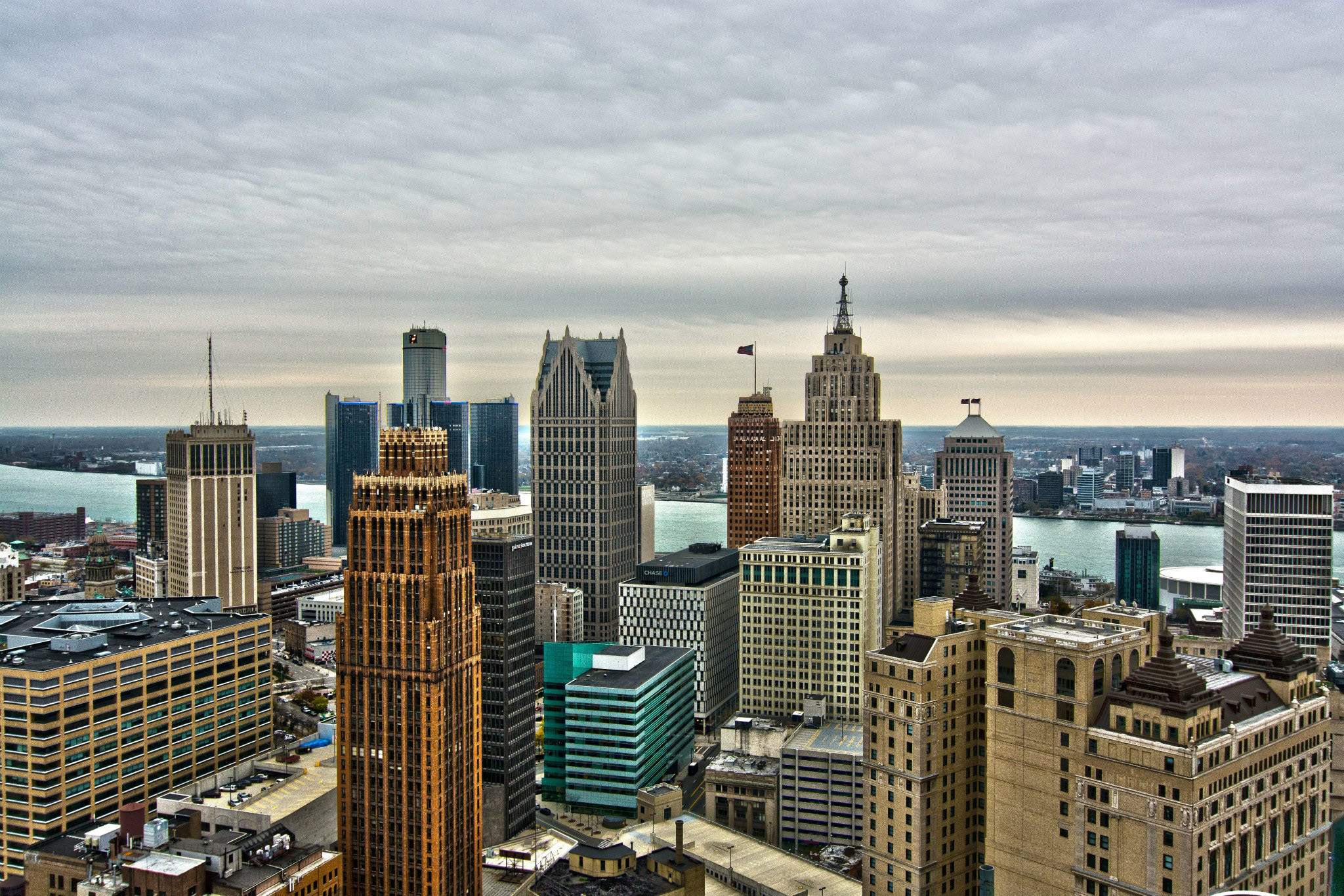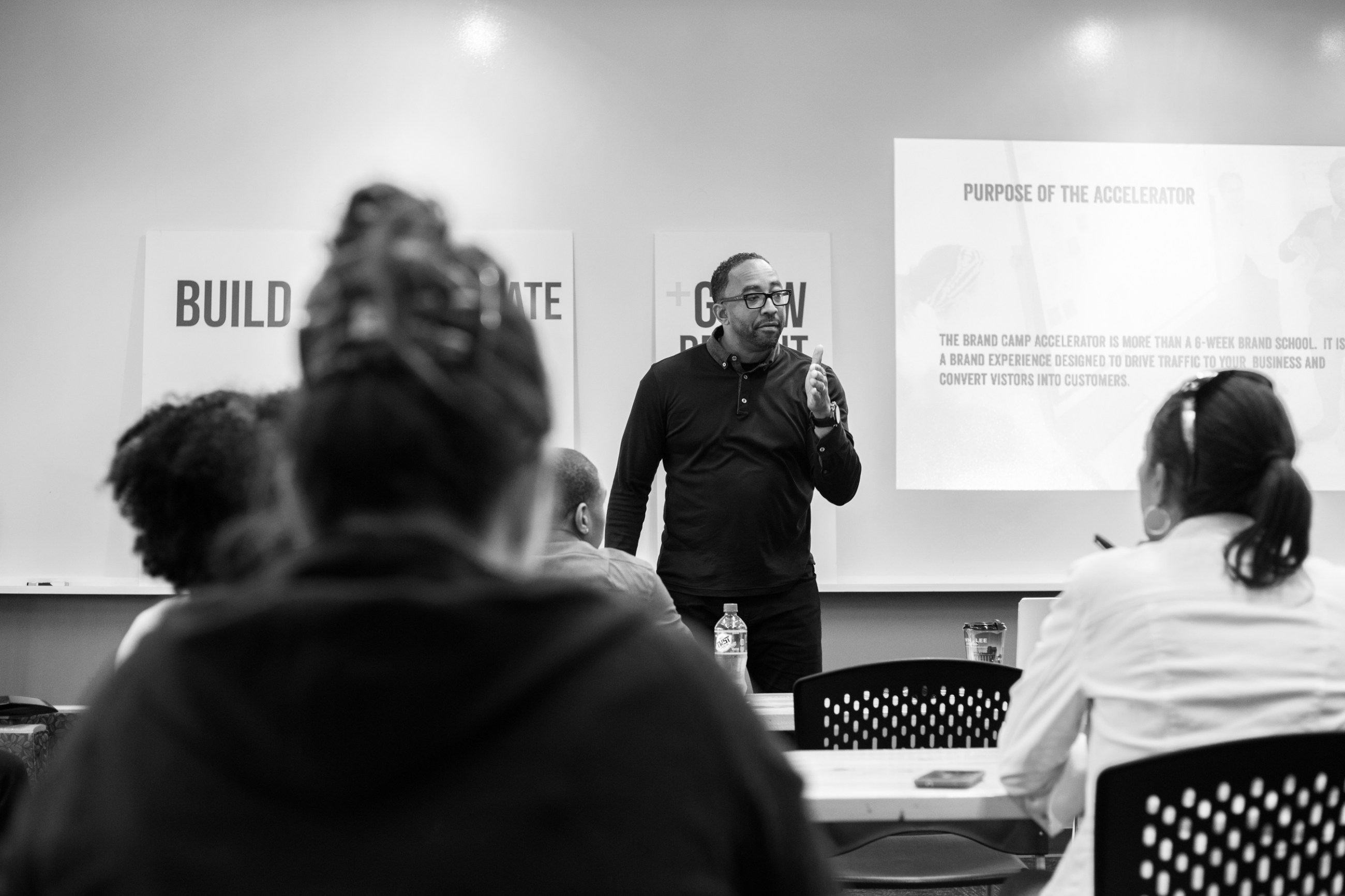
How a Knight Cities Challenge winner is powering a new narrative about Detroit
Hajj Flemings is CEO and founder of Brand Camp University, a winner of Knight Foundation’s 2015 Knight Cities Challenge. On Dec. 1, Brand Camp University launched Rebrand Detroit Stories, a multiplatform series about the people behind the resurgence of Detroit.
In 2011, I was featured on CNN’s “Black in America 4: The New Promised Land Silicon Valley” documentary. I was one of seven entrepreneurs selected to live in Silicon Valley and build a startup while Soledad O’Brien chronicled our story. That experience enlightened me about the dangers of meritocracy and the lack of access to opportunity and technology in disconnected and diverse communities. Meritocracy rewards people with success based purely on talent and effort, ignoring other factors such as race or social class. Some argue that meritocracy is the purest form of fairness, but in practice the falsity of this claim can be shown time and again, including in Detroit; access to opportunity may be nonexistent and bias often has a way of stifling prospects for success. In Detroit’s transformation, we see stories of non-diverse business owners in Midtown and Downtown Detroit that ignore the entrepreneurs in neighborhoods. Our goal is to help create a city that is a place for all people. This was the catalyst of my Rebrand Detroit project.
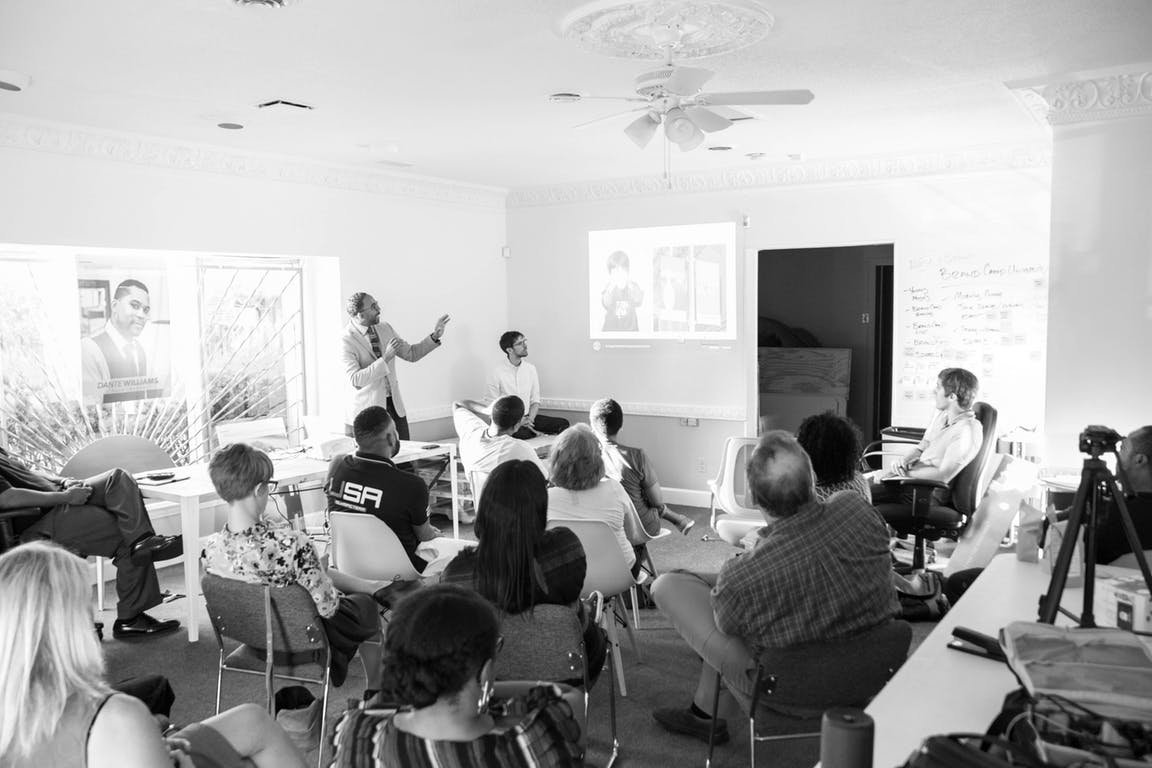
I started my Knight Cities Challenge project with high aspirations fueled with passion to empower neighborhood businesses. I felt like I was ready to change the world. I quickly began to realize that factors outside of my control—city infrastructure, traffic patterns and the lack of foot traffic to name a few—were huge obstacles. We decided to pilot an idea with the existing project, that didn’t require the above factors for success. We worked with five neighborhood businesses through two cohorts of Rebrand Detroit as a part of the project. Through this process two initiatives emerged: “Rebrand Detroit Stories,” where we create professional photographs, video content and stories for businesses with no marketing budget, and “The 100 Project,” an effort to help businesses build a digital footprint.
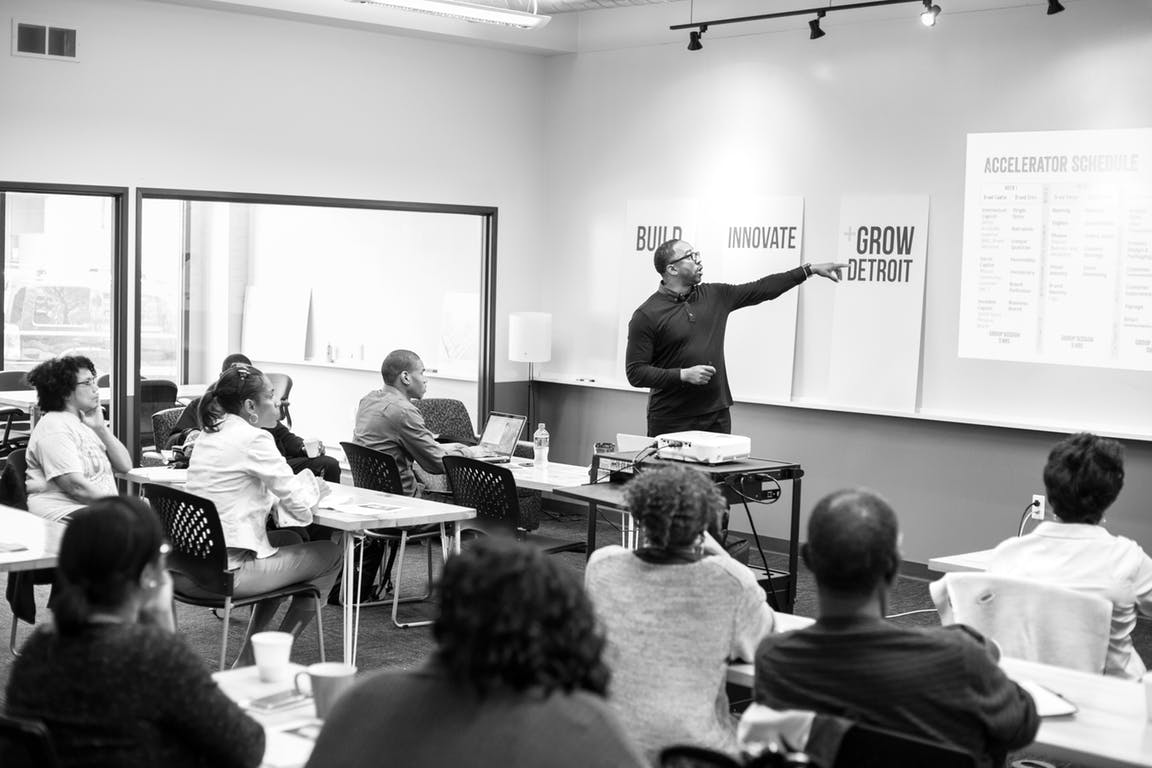
Rebrand Detroit Stories
We launched Rebrand Detroit Stories earlier this month at Pages Bookshop in the Grandmont Rosedale neighborhood. It is an original series, a collection of stories, short films, talks and experiences of Detroiters who are fueling the city’s resurgence. This series takes a look behind the scene of our city and introduces people to everyday residents whose hustle, resilience and passion are changing the place they live, work and play. These stories showcase the work people are doing in neighborhoods across the city, from Grandmont Rosedale, to West Village, to the Hope District and beyond. We help tell the stories of Detroiters who refuse to accept the misguided national narrative that Detroit will always be a bankrupt city. We believe that a city’s people are at the heart of its brand, and these creative pieces aim to inspire residents to help build a city for everyone.
The 100 Project
One of the learning outcomes of my Rebrand Detroit project is the lack of digital strategy and online presence for businesses in Detroit neighborhoods. Our research shows 46 percent of the small businesses in America operate without a website, a national problem that we believe can drive economic impact in urban cities if we turn that number around. We piloted The 100 Project earlier this fall to make brick-and-mortar small businesses in Detroit digitally visible. We want to put 100 Detroit neighborhood businesses on the internet with their own websites. It might seem like a small step, but it can have big results. A website is a piece of digital real estate that is the gateway to a business. In the digital age, it’s necessary for credibility; there is instant validation when you are able to provide a potential customer with a URL or when someone can search in Google Maps to find your restaurant. The fact that 81 percent of people research a business online before making a purchase shows how critical a website is to business success.
What’s next?
Though The 100 Project is based in Detroit, we’re branching out with our work. We have completed four websites in 30 days: Motor City Java (Detroit), The Garden Bug (Detroit), Blackstar Hardware (Philadelphia, another Knight community) and Sun May Company (Seattle). We’re piloting the idea in even more cities. We selected Philadelphia and Miami as our next city hubs because we have strong relationships with those communities through Knight Foundation and Venture for America. Currently WordPress, which is powered by Automattic, has driven The 100 Project with support from developers, website tools, themes and premium business packages for free. We are working with Venture for America Detroit and its Detroit Fellows on two websites, which will help us evaluate next steps. We’re looking forward to seeing the project gain momentum and to helping not just rebrand Detroit, but to rebrand cities across the country through the power of their engaged citizens.
For more about Rebrand Detroit Stories, visit RebrandDetroit.co/stories. For more about The 100 Project, visit RebrandDetroit.co/100project. Follow @HajjFlemings and @rebranddetroit on Twitter.
-
Communities / Article
-
Journalism / Article
-
Journalism / Article
-
Journalism / Article
-
Arts / Article
-
Communities / Article
Recent Content
-
Communitiesarticle ·
-
Communitiesarticle ·
-
Communitiesarticle ·



